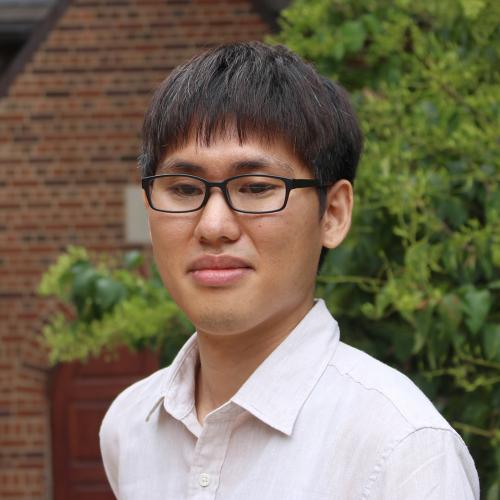Assistant Professor JooYoung Seo has been awarded a $649,921 Early Career Development grant from the Institute of Museum and Library Services (IMLS grant RE-254891-OLS-23), under the Laura Bush 21st Century Librarian Program, which supports "developing a diverse workforce of librarians to better meet the changing learning and information needs of the American public by enhancing the training and professional development of librarians, developing faculty and library leaders, and recruiting and educating the next generation of librarians."
The three-year grant is an extension of Seo's ongoing project, "MAIDR: Multimodal Access and Interactive Data Representation," that has received support from the International Society of the Learning Sciences and the Wallace Foundation. Through the initial work, Seo has been developing computer tools that augment visual charts with touchable (braille), readable (text), and audible (sound) representations, to make them more accessible for the visually impaired. In the new project, Seo's tools will connect the multimodal and accessible data representation with data curators' day-to-day reproducible workflows, integrating them into reproducible frameworks (e.g., Jupyter Notebook, R Markdown, Quarto) and visualization libraries (e.g., R ggplot2, Python matplotlib).
"Multimodal data representation is not merely an innovation; it is an imperative for inclusivity," Seo said. "While data visualization is a dominant method in scientific representation, it inherently marginalizes those who are blind and visually impaired, essentially sidelining them from full participation in the scientific discourse. My multimodal data representation challenges this norm by expanding the toolkit beyond the visual. It incorporates auditory, tactile, and verbal methods, thereby democratizing access to knowledge."
According to Seo, this approach enriches the understanding of data for everyone and offers multiple perspectives that a singular approach could easily miss.
The new project will involve meeting with data curators to assess needs and with blind patrons to shape the tools being created. For that work, Seo will collaborate with his community partners, Data Curation Network (DCN) and the National Federation of the Blind (NFB).
Partners on the project include the National Center for Supercomputing Applications (NCSA), Posit Public Benefit Corporation (FKA, RStudio), and the Chart2Music (C2M) open-source project team.
"By the end of this endeavor, I aspire to deliver a robust, user-friendly, and accessible solution that serves data creators, visually impaired patrons, and people of all abilities who can benefit from multimodal and reproducible data representation. Together, we can democratize data and make it accessible and meaningful for everyone," said Seo.
Seo is an RStudio double-certified data science instructor, active open-source contributor and accessibility expert who is certified by the International Association of Accessibility Professionals (IAAP). His research focuses on how to make computational literacy more accessible to people with disabilities using multimodal data representation. He earned his PhD from the Learning, Design, and Technology Program at Pennsylvania State University.
